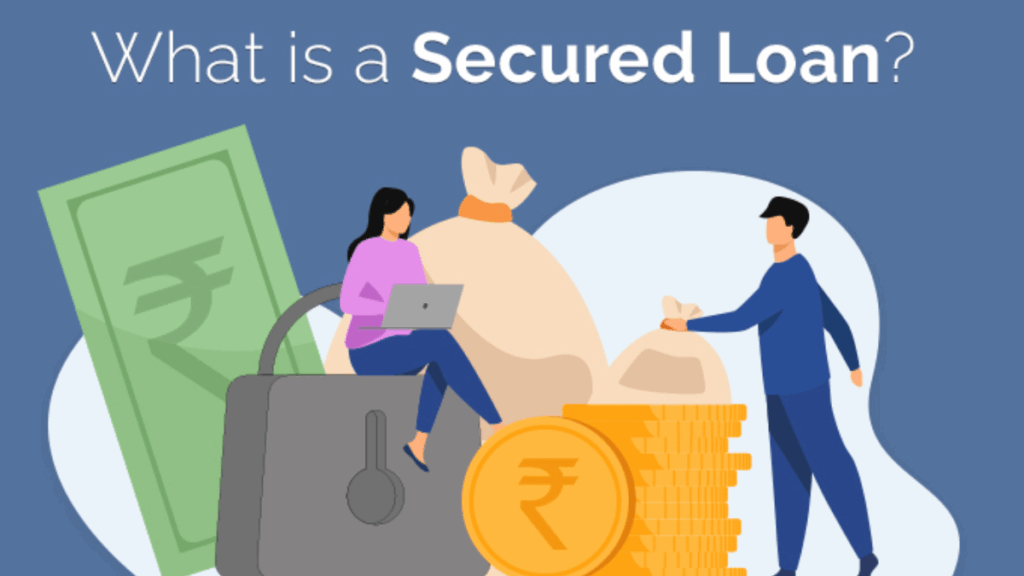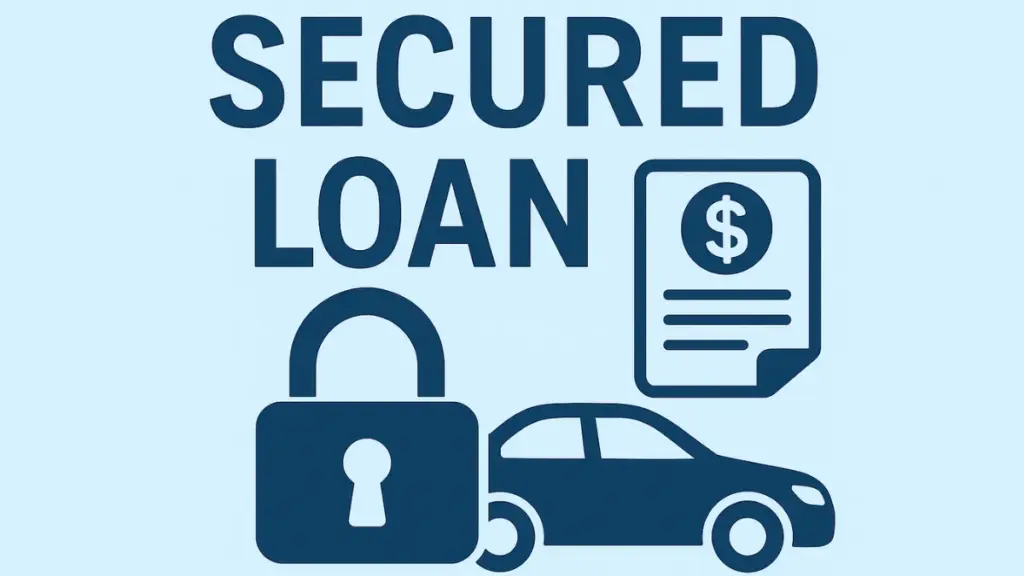A Secured Loan can be a practical solution for individuals who need access to larger amounts at potentially lower interest rates. Unlike unsecured loans, which rely solely on your creditworthiness, a secured loan is backed by collateral such as property, vehicles, or other valuable assets. This guide will explain how secured loans work, their benefits, risks, and what to consider before applying.
What Is a Secured Loan?

A Secured Loan is a type of loan in which the borrower pledges an asset as collateral to the lender. This collateral reduces the lender’s risk, allowing them to offer lower interest rates and larger loan amounts compared to unsecured loans.
How Collateral Works
Collateral is an asset—such as a house, car, or investment—that the lender can seize if the borrower fails to repay the loan. This security ensures the lender has a fullback option, making approval easier for those with lower credit scores.
Secured Loan vs. Unsecured Loan
- Secured Loan: Requires collateral, offers lower interest rates, and higher borrowing limits.
- Unsecured Loan: No collateral, higher interest rates, and stricter credit requirements.
How a Secured Loan Works
Understanding the mechanics of a secured loan can help you make informed financial decisions.
The Application Process
- Choose a Lender – Compare banks, credit unions, and online lenders.
- Provide Collateral Details – Offer details of the asset you are pledging.
- Credit Check & Appraisal – Lenders assess your credit score and the value of the collateral.
- Loan Approval – If approved, the lender provides the funds.
- Repayment – Repay in monthly installments as per the agreement.
Interest Rates and Terms
Secured loans often have fixed interest rates, but some may offer variable rates. Terms can range from 1 to 30 years, depending on the loan type.
Common Types of Secured Loans
There are various secured loan options tailored to different financial needs.
Mortgage Loans
A loan where your home is the collateral. Commonly used for purchasing property or refinancing an existing mortgage.
Auto Loans
Used to purchase vehicles, with the car itself serving as collateral.
Home Equity Loans
Borrowing against the equity built in your home, often used for renovations or debt consolidation.
Secured Personal Loans
A flexible loan type that allows you to use various assets, such as savings accounts or certificates of deposit, as collateral.
Benefits of a Secured Loan

Secured loans come with several advantages that make them appealing for borrowers.
Lower Interest Rates
Because the lender’s risk is reduced, secured loans typically have lower interest rates than unsecured alternatives.
Higher Borrowing Limits
Collateral-backed loans often allow you to borrow larger amounts.
Easier Approval
Even with a less-than-perfect credit score, having collateral increases your chances of approval.
Flexible Loan Uses
You can use a secured loan for various purposes, from home renovations to consolidating debt.
Risks of a Secured Loan
While secured loans offer benefits, they also come with potential drawbacks.
Risk of Losing Collateral
If you fail to repay the loan, the lender can seize your pledged asset.
Longer Repayment Terms
While longer terms mean smaller monthly payments, you may end up paying more in interest over time.
Fees and Penalties
Some lenders charge prepayment penalties or appraisal fees.
Tips Before Applying for a Secured Loan
Taking precautionary steps before applying can help you avoid financial pitfalls.
Evaluate Your Ability to Repay
Consider your monthly income, expenses, and other financial commitments.
Understand the Loan Terms
Read the fine print to avoid hidden charges or unfavorable conditions.
Compare Lenders
Shop around for the best interest rates, fees, and repayment terms.
Is a Secured Loan Right for You?
A secured loan is a good option if:
- You have valuable collateral.
- You need a larger loan amount.
- You want lower interest rates.
However, if you’re not confident about making consistent repayments, the risk of losing your asset may outweigh the benefits.
Also Read : Personal Loans vs Home Loans: Which is Right for You
Conclusion
A Secured Loan can be a smart financial tool for those who need substantial funds with manageable interest rates. By understanding how secured loans work, assessing the benefits and risks, and carefully choosing a lender, you can make an informed decision that supports your financial goals. Always remember: borrowing should fit within your ability to repay, and your collateral should never be something you can’t afford to lose.
FAQs
1. What qualifies as collateral for a secured loan?
Common examples include real estate, vehicles, savings accounts, and investments.
2. Can I get a secured loan with bad credit?
Yes, collateral reduces lender risk, making it easier to get approved despite poor credit.
3. What happens if I default on a secured loan?
The lender can seize and sell your collateral to recover the owed amount.
4. Are secured loans cheaper than unsecured loans?
Typically, yes. The reduced risk for lenders often results in lower interest rates.
5. Can I pay off a secured loan early?
Yes, but check for prepayment penalties before doing so.



